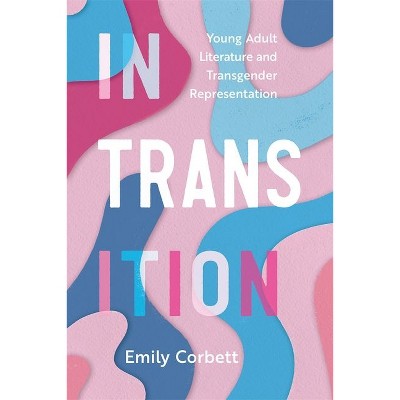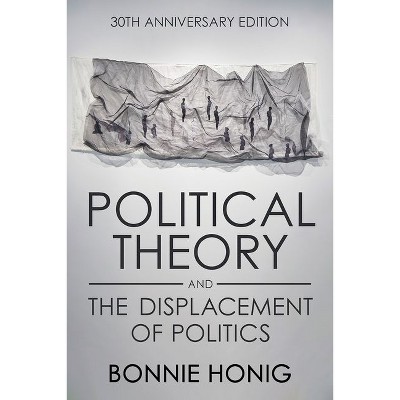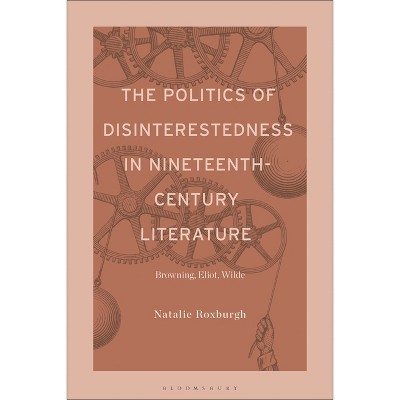Sponsored

Proximities: Literature, Mobility, and the Politics of Displacement - (English Association Monographs: English at the Interface) by John Culbert
In Stock
Sponsored
About this item
Highlights
- Ebook available to libraries exclusively as part of the JSTOR Path to Open intiative.As the era of high globalization has given way to a time of resurgent nationalisms, the discourse of travel has undergone significant change.
- Author(s): John Culbert
- 312 Pages
- Literary Criticism, American
- Series Name: English Association Monographs: English at the Interface
Description
Book Synopsis
Ebook available to libraries exclusively as part of the JSTOR Path to Open intiative.
As the era of high globalization has given way to a time of resurgent nationalisms, the discourse of travel has undergone significant change. The previous era's keywords of freedom, mobility and connection increasingly vie with a language of borders, security and national identity. In this study of the politics of modern travel and migration, John Culbert shows how today's contradictions of global mobility are an abiding feature of modernity and an outgrowth of coloniality as an ongoing practice of land theft, displacement and dispossession.
Focussing on English, American, and Anglophone literary writing on travel, and spanning early twentieth-century tourism to present-day refugee narratives, Proximities examines contexts and situations in which travellers of discrepant rights and privileges meet, arguing that such scenes of 'proximity' yield unforeseen prospects for ethical rapports and political solidarity. In so doing, Culbert makes a strong case for humanistic and interdisciplinary critical study at a time when research on mobility and migration is dominated by social-scientific knowledge. Pointing out that the contradictions of global mobility are reflected in the academy itself, Culbert advocates for a reflexive, decolonial critique of the conditions of knowledge production today. Proximities is a vital contribution to current debates on citizenship, human rights, decoloniality and the right to move.
Review Quotes
'John Culbert offers a remarkable interdisciplinary reflection on the politics and narratives of mobility and the epistemologies of proximities and borders. The author attends with critical urgency to crossings and encounters, while looking into the intimacy of travel writing and our understanding of the trauma of displacement and migration. A wide-ranging, extremely rich work that takes us into new and imperative connections.' Marta Cariello, Università degli Studi della Campania Luigi Vanvitelli
'John Culbert has written an important and timely book. Proximities skilfully draws on critical theory, deconstruction, and postcolonial/decolonial theory to cast an innovative and original light on how narrative positions subjectivity in a world of forced displacement - what he calls "troubled mobility". In a series of detailed and perspicacious analyses, he demonstrates the importance of the imagination in the politics of travel, migration and borders. Guiding the reader through texts by Edith Wharton, Samuel Beckett, and Jamaica Kincaid, he presents a powerful argument for examining the complicity of representation in systems of domination.' John K. Noyes, University of Toronto
'An exciting work of scholarship and critique, Proximities charts new ground as it confronts the vexed questions of who travels, under what circumstances and to what ends, and who gets to write about it. Focussing on the ideological "paralyses" at play in texts by writers as diverse as Edith Wharton and Behrouz Boochani, Samuel Beckett and Jamaica Kincaid, Culbert provides new and astute perspectives on the power of the literature of travel and mobility to inform and influence intercultural dialogues and dynamics.' Robert Clarke, University of Tasmania
'John Culbert advocates for an ethics of narrative to operate in tandem with a politics of asylum in representations of displacement. Through juxtapositions of unlikely authors such as Jamaica Kincaid, Samuel Beckett, Edith Wharton, and Behrouz Boochani, Culbert develops the "proximate alterities" rather than incommensurable differences that dislocation and (im)mobility embody and evoke.' Asha Varadharajan, Queen's University
'What do you get when you cross the travelogue with extreme precarity? When you are John Culbert, you get blocked journeys, sublime shipwrecks, and a critique of the new mobility paradigm - in short, a sharp-eyed, wised-up version of cosmopolitanism.' Bruce Robbins, Columbia University
Shipping details
Return details
Trending Poetry











